Related Research Articles

Berenice Alice Abbott was an American photographer best known for her portraits of cultural figures of the interwar period, New York City photographs of architecture and urban design of the 1930s, and science interpretation of the 1940s to the 1960s.
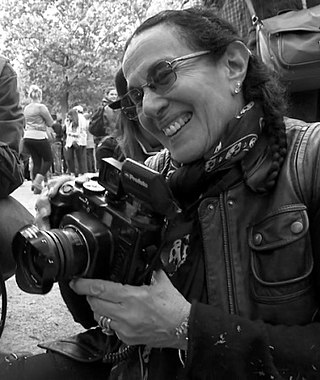
Mary Ellen Mark was an American photographer known for her photojournalism, documentary photography, portraiture, and advertising photography. She photographed people who were "away from mainstream society and toward its more interesting, often troubled fringes".

Marion Post Wolcott was an American photographer who worked for the Farm Security Administration during the Great Depression documenting poverty, the Jim Crow South, and deprivation.

Esther Bubley was an American photographer who specialized in expressive photos of ordinary people in everyday lives. She worked for several agencies of the American government and her work also featured in several news and photographic magazines.
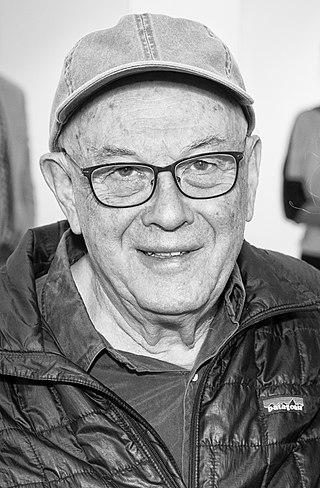
Bruce Landon Davidson is an American photographer. He has been a member of the Magnum Photos agency since 1958. His photographs, notably those taken in Harlem, New York City, have been widely exhibited and published. He is known for photographing communities usually hostile to outsiders.

Constance Stuart Larrabee was an English photographer best known for her images of South Africa and her photo-journalism on Europe during World War II. She was South Africa's first female war correspondent.

Art Shay was an American photographer and writer.
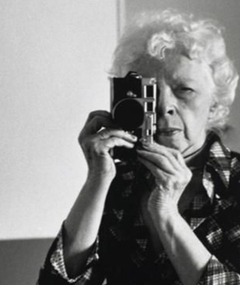
Lisette Model was an Austrian-born American photographer primarily known for the frank humanism of her street photography.
Linda Connor is an American photographer living in San Francisco, California. She is known for her landscape photography.

Documerica was a program sponsored by the United States Environmental Protection Agency to "photographically document subjects of environmental concern" in the United States from about 1972 to 1977. The collection, now at the National Archives, contains over 22,000 photographs, more than 15,000 of which are available online. The title is a portmanteau of "documentary" and "America".

Bea Nettles is a fine art photographer and author currently residing in Champaign/Urbana, Illinois.
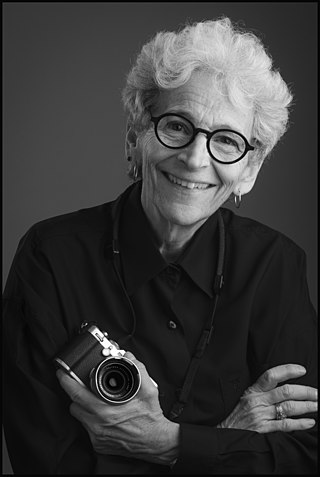
Penny Wolin, also known as Penny Diane Wolin and Penny Wolin-Semple, is an American portrait photographer and a visual anthropologist. She has exhibited solo at the Smithsonian Institution and is the recipient of two grants from the National Endowment for the Humanities and one grant from the National Endowment for the Arts. Her work is held in the permanent collections of such institutions as Harvard University, the Layton Art Collection at the Milwaukee Art Museum, the Santa Barbara Museum of Art, the New York Public Library and the Smithsonian American Art Museum. Known for her documentary and conceptual photographs, she has completed commissions for major corporations, national magazines and private collectors, including the Walt Disney Corporation, LIFE Magazine and the Brant Foundation. For over 30 years, she has used photographic portraiture with oral interviews to research Jewish civilization in America.
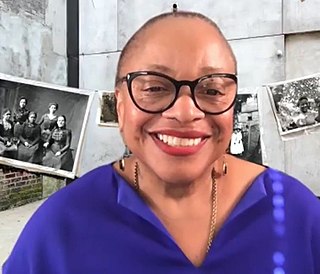
Deborah Willis is a contemporary African-American artist, photographer, curator of photography, photographic historian, author, and educator. Among her awards and honors, she is a 2000 MacArthur Fellow. She is currently Professor and Chair of the Department of Photography and Imaging at Tisch School of the Arts of New York University.

William Herman Rau was an American photographer who was active primarily in the latter half of the 19th and early 20th centuries. He is best remembered for his stereo cards of sites around the world, and for his panoramic photographs of sites along the Pennsylvania Railroad.

Israel Zafrir was an Israeli photographer. Born to Solomon Glaser and Regine (Rifke) Baumöhl. Zafrir was one of the founding fathers of modern documentary photography in Israel.

Jo-Anne McArthur is a Canadian photojournalist, humane educator, animal rights activist and author. She is known for her We Animals project, a photography project documenting human relationships with animals. Through the We Animals Humane Education program, McArthur offers presentations about human relationships with animals in educational and other environments, and through the We Animals Archive, she provides photographs and other media for those working to help animals. We Animals Media, meanwhile, is a media agency focused on human/animal relationships.
Joan Myers is a fine art photographer best known for her images of Antarctica and the American West. She has also photographed the Japanese Relocation Camp from the 1940s, the Spanish pilgrimage to Santiago de Compostela, India wildlife, women as they age, and the extremes of ice and fire such as glaciers and volcanoes. She currently lives in northern New Mexico.

Photographs have been taken in the area now known as Canada since 1839, by both amateurs and professionals. In the 19th century, commercial photography focussed on portraiture. But professional photographers were also involved in political and anthropological projects: they were brought along on expeditions to Western Canada and were engaged to document Indigenous peoples in Canada by government agencies.

Louisa Bernie Gallaher, also known as L. Bernie Gallaher, was an American scientific photographer for the Smithsonian United States National Museum (USNM). She was the Smithsonian's first woman photographer and worked at the institution for 39 years, from 1878 until her death in 1917.
References
- ↑ "New York Public Library Photographers' Identity Catalog". NYPL Photographers' Identity Catalog. Retrieved 9 January 2023.
- 1 2 "Constance P. Warner, Photographer, Dies". Washington Post. 16 June 1992. Retrieved 9 January 2023.
- ↑ Archives, Smithsonian Institution (1959–1970). "Accession 16-158 Constance P. Warner Slide Collection, circa 1959-1970". Smithsonian Institution Archives. Retrieved 2023-01-09.
- ↑ "Smithsonian Year 1965" (Smithsonian Institution). 1965: 204. Retrieved 9 January 2023.
{{cite journal}}: Cite journal requires|journal=(help)